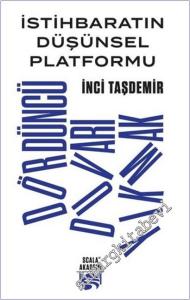#smrgKİTABEVİ The Relationship Between the Perception of Overqualification and Deviant Workplace Behaviors Within the Framework of Talent Management - 2025
Editör:
Kondisyon:
Yeni
Sunuş / Önsöz / Sonsöz / Giriş:
ISBN-10:
6253851859
Kargoya Teslim Süresi (İş Günü):
3&7
Hazırlayan:
Cilt:
Amerikan Cilt
Boyut:
14x22
Sayfa Sayısı:
118
Basım Yeri:
Konya
Baskı:
1
Basım Tarihi:
2025
Kapak Türü:
Karton Kapak
Kağıt Türü:
1. Hamur
Dili:
İngilizce
Kategori:
indirimli
297,50
Havale/EFT ile:
291,55
Siparişiniz 3&7 iş günü arasında kargoda
1199242589
629789

https://www.simurgkitabevi.com/the-relationship-between-the-perception-of-overqualification-and-deviant-workplace-behaviors-within-the-framework-of-talent-management-2025
The Relationship Between the Perception of Overqualification and Deviant Workplace Behaviors Within the Framework of Talent Management - 2025 #smrgKİTABEVİ
297.50
Establishing an organizational structure based on talents and successfully managing this structure is a highly significant issue. The concept of talent management emerged in the early 1990s as a result of research on the determinants that distinguish a successful and efficient organization from others. Due to global, economic, and demographic trends, today's challenging work environment has made talent management a concept of critical importance for both businesses and employees who are aware of their own qualifications and skills. As businesses compare their talent pool with market talents and conditions to test their uniqueness and adopt performance-enhancing trends, employees, within the work cycles, seek roles and tasks aligned with their own qualifications. Consequently, organizations strive to identify key talent with essential competencies - those who serve as role models, drive innovation, and contribute to sustainable competitive advantage. In this context, businesses recognize that not every job can be performed by everyone and implement a talent-to-task matching approach. As a result, employees perceive that they are positioned according to their qualifications, find their work meaningful, view it as a source of personal development, and consider the work environment valuable.
Establishing an organizational structure based on talents and successfully managing this structure is a highly significant issue. The concept of talent management emerged in the early 1990s as a result of research on the determinants that distinguish a successful and efficient organization from others. Due to global, economic, and demographic trends, today's challenging work environment has made talent management a concept of critical importance for both businesses and employees who are aware of their own qualifications and skills. As businesses compare their talent pool with market talents and conditions to test their uniqueness and adopt performance-enhancing trends, employees, within the work cycles, seek roles and tasks aligned with their own qualifications. Consequently, organizations strive to identify key talent with essential competencies - those who serve as role models, drive innovation, and contribute to sustainable competitive advantage. In this context, businesses recognize that not every job can be performed by everyone and implement a talent-to-task matching approach. As a result, employees perceive that they are positioned according to their qualifications, find their work meaningful, view it as a source of personal development, and consider the work environment valuable.
Yorum yaz
Bu kitabı henüz kimse eleştirmemiş.




















